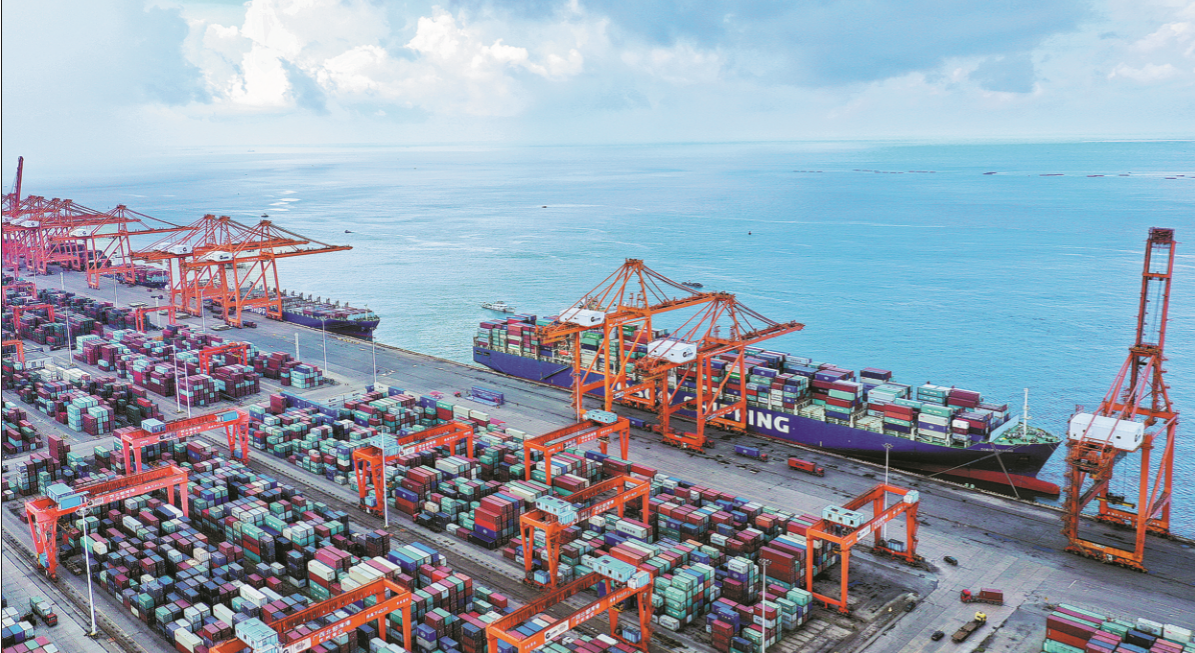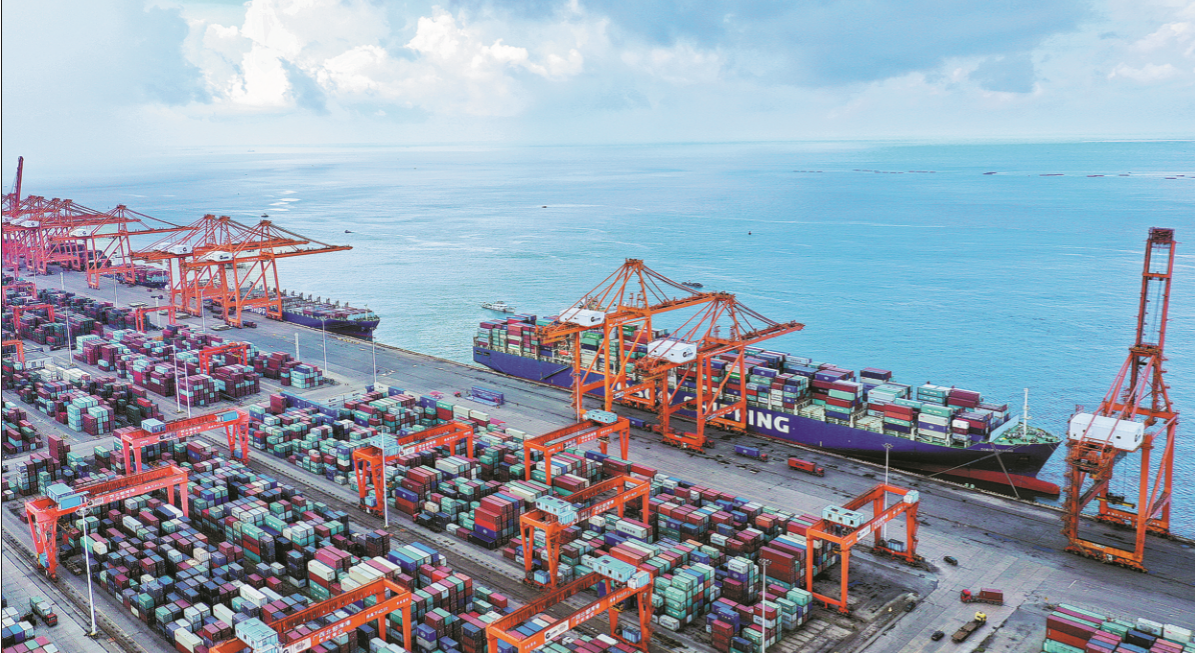
Reductions cover various sectors and are aimed at boosting trade ties
China's new round of reductions in import tariffs, announced on Thursday, highlights the country's commitment to further open up its economy and promote international trade cooperation, officials and experts said.
The tariff cuts will cover various sectors like advanced manufacturing, medical care and agriculture, and are aimed at providing high-quality supplies to meet public needs. This will enhance the competitiveness of domestic industries and drive high-quality development, they said.
China will implement provisional import tariff rates lower than the most-favored-nation rates on 1,010 items starting Jan 1, according to a statement issued by the Customs Tariff Commission of the State Council.
Import tariffs on key resources, equipment and components that are domestically scarce, like gas diffusion layers (key components in various types of fuel cells), will be lowered to facilitate the development of the country's advanced manufacturing industries, the commission said.
Certain anti-cancer medications and drugs for rare diseases, as well as relevant raw materials, will be subject to zero import tariffs. Additionally, import tariffs on foods for special medical purposes and other related products will be reduced, the commission said, adding it will better safeguard people's health with high-quality supplies.
In a move to support the development of the agricultural sector, import tariffs on sweet corn, coriander and burdock seeds will be trimmed, while export tariffs on high-purity aluminum will be reduced to foster the growth of the country's new materials industry, the commission said.
The purpose of the latest tariff reductions is to expand high-standard opening-up and make better use of the resources and markets both domestically and internationally while preserving stability and efficiency in the country's industrial and supply chains, said Wu Hongmei, director of Customs Department at the Ministry of Finance.
Another aim is to encourage domestic industries to advance digital transformation and upgrades, improve their competitiveness on the international stage, and foster stronger internal drivers of economic growth, Wu said.
The decision to cut import tariffs is driven by multiple factors, including China's own needs, industry development and the desire to enhance the well-being of its citizens, said Tu Xinquan, head of the China Institute for WTO Studies, which is part of the University of International Business and Economics in Beijing.
By aligning the pace of tariff reductions with the country's economic requirements, China aims to promote a more open and inclusive economic landscape and create a favorable environment for more foreign businesses to enter the Chinese market, Tu said.
China's immense market size presents an array of opportunities for countries worldwide, creating new avenues for international cooperation, said Gao Lingyun, researcher at the Institute of World Economics and Politics, which is part of the Chinese Academy of Social Sciences.
The tariff adjustments are a crucial component of China's efforts to build a global high-standard free trade network and facilitate a more seamless flow of goods and investments, promoting shared development globally, Gao said.






